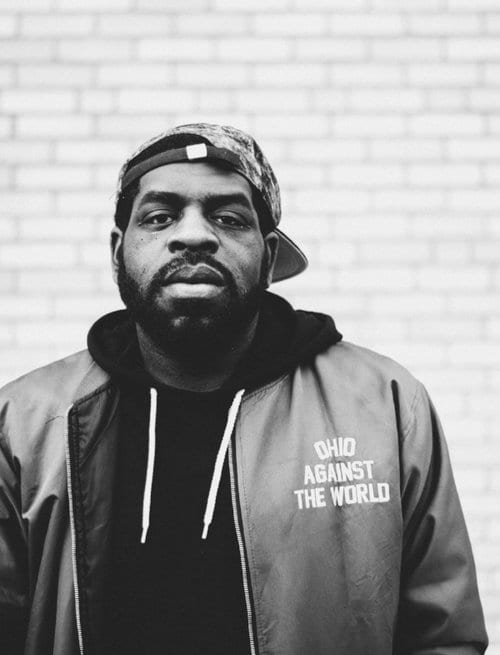
Based in Columbus, Ohio, Hanif Abdurraqib has made a name for himself as both a poet and a music critic. Fittingly, his collection of essays, “They Can’t Kill Us Until They Kill Us,” combines the best elements of poetry and criticism. Abdurraqib examines the cultural implications of music with a frankness that’s both plainspoken and, at times, searingly beautiful.
As its title suggests, “They Can’t Kill Us Until They Kill Us” doesn’t shy away from death. Loss is a recurring theme in Abdurraqib’s essays, which explore how music can shape our experiences of grief — as relief, as homage, and as a means of connecting our pain to a larger human experience. With level-headed clarity, he conveys the complex and often peculiar ways in which we find comfort while coping with loss.
For instance, if you were to imagine the song that might help you cope with a loved one’s death, your first idea probably wouldn’t be The Notorious B.I.G.’s “Mo Money Mo Problems.” However, in his essay “The Summer of 1997,” Abdurraqib recalls how the release of B.I.G.’s rap hit offered him much-needed solace after his mother died unexpectedly while he was in his teens. The song featured samples of the triumphant chorus from Diana Ross’s 1980 hit “I’m Coming Out,” drawing on the past to celebrate the present in a way that echoed hope and resilience.
“This, too, is a response to grief. Covering yourself in the spoils of your survival and making music that sent people dancing in the streets again. What I took away from 1997 wasn’t how much I’d lost, though that burden was mighty. I remembered the songs my mother loved once, repurposed for my own pleasures, and this made it feel like she had never left.”

Hanif Abdurraqib, author of “They Can’t Kill Us Until They Kill Us.”
Credit: abdurraqib.com
This is one of many unexpected but profoundly relatable connections that Abdurraqib makes in “They Can’t Kill Us Until They Kill Us.” In his essay “On Future and Working Through What Hurts,” Abdurraqib recalls his attempts to escape the grieving process by pushing himself to work until he could no longer think about his pain. During this time, he listened to the work of Future, an artist who had begun obsessively producing new music following a painful divorce. He felt his own urge toward denial mirrored in Future’s songs, and ultimately recognized the futility of chasing oblivion.
“The endless work, the hiding from that which hurts, maybe leads to some unforeseen success. And the funny thing about that is how it won’t make any of us feel less alone. That’s how running into one thing to escape another works. Distance has a wide mouth, and I haven’t slept in a bed in 48 hours, and the people who miss me are not always the people I want to be missed by, and the last time I stood over my mother’s grave, the weeds had grown around her name so I picked at them with my bare hands for a while before giving up and sitting down inside of them instead.”
These essays touch on some heavy themes – death, suicide, violence, racism – but Abdurraqib navigates them with an honesty that’s both uncompromising and deeply compassionate. The underlying tone of “They Can’t Kill Us Until They Kill Us” is one that advocates for hope; not because it makes sense, but because it’s how we live. This is an emotional but ultimately uplifting read for anyone who has experienced loss.

 “They Can’t Kill Us Until They Kill Us” by Hanif Abdurraqib
“They Can’t Kill Us Until They Kill Us” by Hanif Abdurraqib


 First the Wealth Gap, Now the U.S. Has a Growing Health Gap
First the Wealth Gap, Now the U.S. Has a Growing Health Gap
 How to Comfort A Dying Loved One
How to Comfort A Dying Loved One
 Our Annual Seven Holiday Gifts for Someone Who Is Grieving, 2024 Edition
Our Annual Seven Holiday Gifts for Someone Who Is Grieving, 2024 Edition














